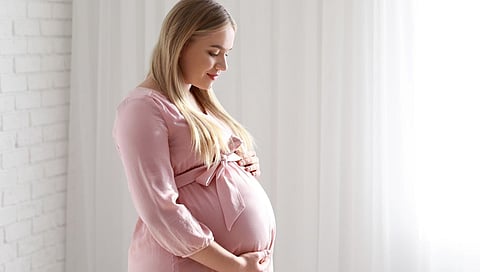THURSDAY, Aug. 22, 2024 (HealthDay News) -- Pregnant people with intellectual and developmental disabilities (IDD) tend to be younger at first delivery, have fewer live births, and have higher rates of physical and mental health conditions, according to a study published online Aug. 15 in JAMA Network Open.
Lindsay Shea, Dr.P.H., from Drexel University in Philadelphia, and colleagues conducted a retrospective cohort study using national Medicaid claims from Jan. 1, 2008, to Dec. 31, 2019, for 55,440 pregnant women with IDD (41,854 with intellectual disabilities and 13,586 with autism) and 438,557 without IDD.
The researchers found that compared with people without IDD, those with IDD were younger at first observed delivery, had a lower prevalence of live births, and had higher rates of obstetric conditions (gestational diabetes, gestational hypertension, and preeclampsia). They also had co-occurring physical conditions (heart failure, hyperlipidemia, ischemic heart disease, and obesity) and mental health conditions (anxiety disorders, depressive disorders, and posttraumatic stress disorder). Compared with people with intellectual disabilities only and those without IDD, autistic people had a significantly higher probability of postpartum anxiety and postpartum depression (adjusted hazard ratios, 3.2 and 2.4, respectively).
"Findings from this cohort study present a need to tailor reproductive health education, perinatal care, and delivery services to ensure comprehensive and targeted support for birthing people with IDD," the authors write.
Abstract/Full Text


